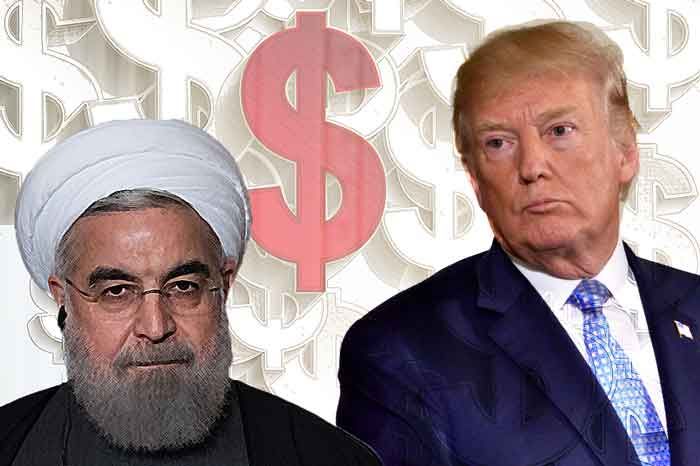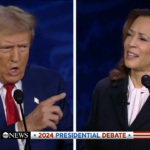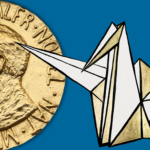Why Trump supports diplomacy with North Korea but not Iran
By Navid Hassibi | May 2, 2018

Even while the Trump administration looks increasingly likely to withdraw from the Iran nuclear deal on May 12, it is simultaneously preparing for an historic summit with North Korea’s Kim Jong-un, as part of an effort to negotiate a nuclear deal with Pyongyang. This contradictory, disjointed approach to non-proliferation is consistent with the style of a leader like President Trump, who seems to view foreign policy as a random collection of individual business deals rather than a single grand coherent strategy with an overarching goal; more often than not, there seems to be a lack of strategic linkages to US national interests. It is downright peculiar that the Trump administration is actively sabotaging the nuclear deal with Iran while simultaneously engaging in high-level talks with North Korea in an effort to negotiate nuclear constraints.
To be sure, President Trump has been consistent in his disdain for the Iran deal, formally known as the Joint Comprehensive Plan of Action (JCPOA), often referring to it as “the worst deal ever.” As candidate, he pledged to “rip up” the deal as soon as he took office. As president, he has reluctantly certified the Iran deal twice, before refusing to do so a third time in October. While decertification did not render the United States non-compliant with the deal, the president’s failure to renew sanctions waivers in May would place Washington in material breach of the accord—a moot point if the United States proceeds to back out of the deal altogether. (Backing out is a scenario all-too-likely with the arrival of known Iran hawks John Bolton as national security adviser, and Mike Pompeo as Secretary of State.)
Since his arrival into office, President Trump has seemingly been intent on rolling back and reversing many of his predecessor’s achievements, not least the Iran deal. It often seems that Trump just wants to get rid of an Obama policy simply because it has the name “Obama” attached to it. Although Trump’s personal contempt for policy initiatives developed and implemented by the Obama administration could explain part of the president’s desire to undo the Iran deal, there is more at play here.
For what actually guides Trump’s Iran policy is a decades-old, cash-infused institutionalization of opposition to Iran in certain policy quarters within the Beltway—which seems to have met its kindred spirit at the White House. Indeed, despite his best efforts to sway President Trump to remain in the Iran deal, French President Emmanuel Macron remarked during his recent visit to Washington that he believed the US president would still pull out, because of what he diplomatically called “domestic reasons.” Wealthy benefactors who oppose engagement with Iran, such as Sheldon Adelson (who donated generously to Trump’s presidential campaign) and like-minded groups such as the American Israel Public Affairs Committee (AIPAC), and the more low-profile pro-Israel public relations group/think tank known as the “Foundation for Defense of Democracies” have made it their unofficial raison d’être to oppose US national interest-driven engagement with Tehran.
What is more, the Mujahideen-e-Khalq or MEK, a violent, cult-like Iranian opposition group which was designated a terrorist organization by the State Department until 2012, has increased its lobbying efforts and developed close ties with numerous Trump allies, including national security adviser John Bolton. Relatedly, anti-Iran engagement sentiments are stemming from two of the president’s closest foreign allies: the Israeli government of Prime Minister Benjamin Netanyahu and Crown Prince Mohammed bin Salman’s Saudi Arabia. While the Obama administration expended significant political capital to surmount rigorous policy and political opposition as it tried to push the Iran deal through, President Trump and his political appointees and supporters have no such inclination.
In the case of North Korea, the hurdles preventing the United States from pursuing its own best national interests and engaging with Iran do not pop up. There is no equivalent of MEK or AIPAC lobbying the White House on behalf of North Korea; there is no North Korean version of Sheldon Adelson to obstruct a push for peace with Pyongyang. North Korea presents President Trump with the opportunity to achieve success where his predecessors could not; a possible motivating factor for the president. When discussing North Korea, the president often throws the Clinton, Bush, and Obama administrations under the bus by voicing that the issue should have been handled long ago. Unlike Iran, the issue of North Korea has not galvanized a large and well-funded institutionalized policy sector devoted to curtailing engagement with Pyongyang. This provides room for US policy on North Korea to more accurately reflect US interests. For the Trump administration, this means that beyond the president’s showmanship and impulse to meet with Kim Jong-un, diplomacy can be given a chance with the hermit kingdom.
While the outcome of the upcoming Trump-Kim Summit remains to be seen, one thing is clear: Policy incoherence within the Oval Office is pushing for the withdrawal of the United States from the most intrusive non-proliferation deal ever developed on the one hand, while looking to negotiate a more stringent deal on the other. In doing so, the Trump administration will essentially look to swap one crisis for another. Iranian Foreign Minister Mohammad Javad Zarif indicated as much recently, when he said that Iran could withdraw from the deal too, and resume (or even increase) its uranium enrichment.
To be certain, the JCPOA has performed as it was designed to by severely limiting Iran’s nuclear program as per International Atomic Energy Agency and US assessments. The Iran Deal was negotiated in good faith not only between the United States and Iran, a signatory of the Nuclear Non-Proliferation Treaty, but with the other world powers, the so-called P5+1 (France, United Kingdom, Germany, Russia and China), and it was endorsed by the European Union and the UN Security Council. Any deal with North Korea, which withdrew from the NPT in 2003, will ironically rely heavily on the JCPOA as a template. US withdrawal from the JCPOA will add to that template by reminding North Korea that future administrations may not adhere to the terms of a negotiated deal.
If the Trump administration is successful at securing a nuclear deal with North Korea, credit should be given where it is due. However, how does it serve US national interests to avoid conflict with one country while at the same time increasing its chances with another? This is all to say that the president should not be so quick to rip apart the Iran deal no matter what his “domestic reasons” are.
Together, we make the world safer.
The Bulletin elevates expert voices above the noise. But as an independent nonprofit organization, our operations depend on the support of readers like you. Help us continue to deliver quality journalism that holds leaders accountable. Your support of our work at any level is important. In return, we promise our coverage will be understandable, influential, vigilant, solution-oriented, and fair-minded. Together we can make a difference.
Topics: Analysis















